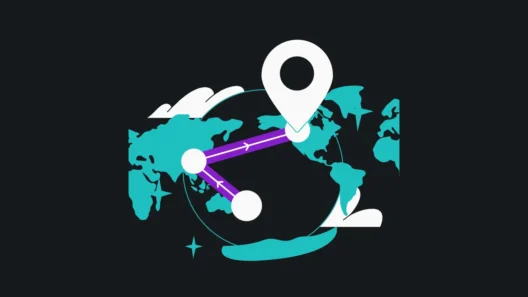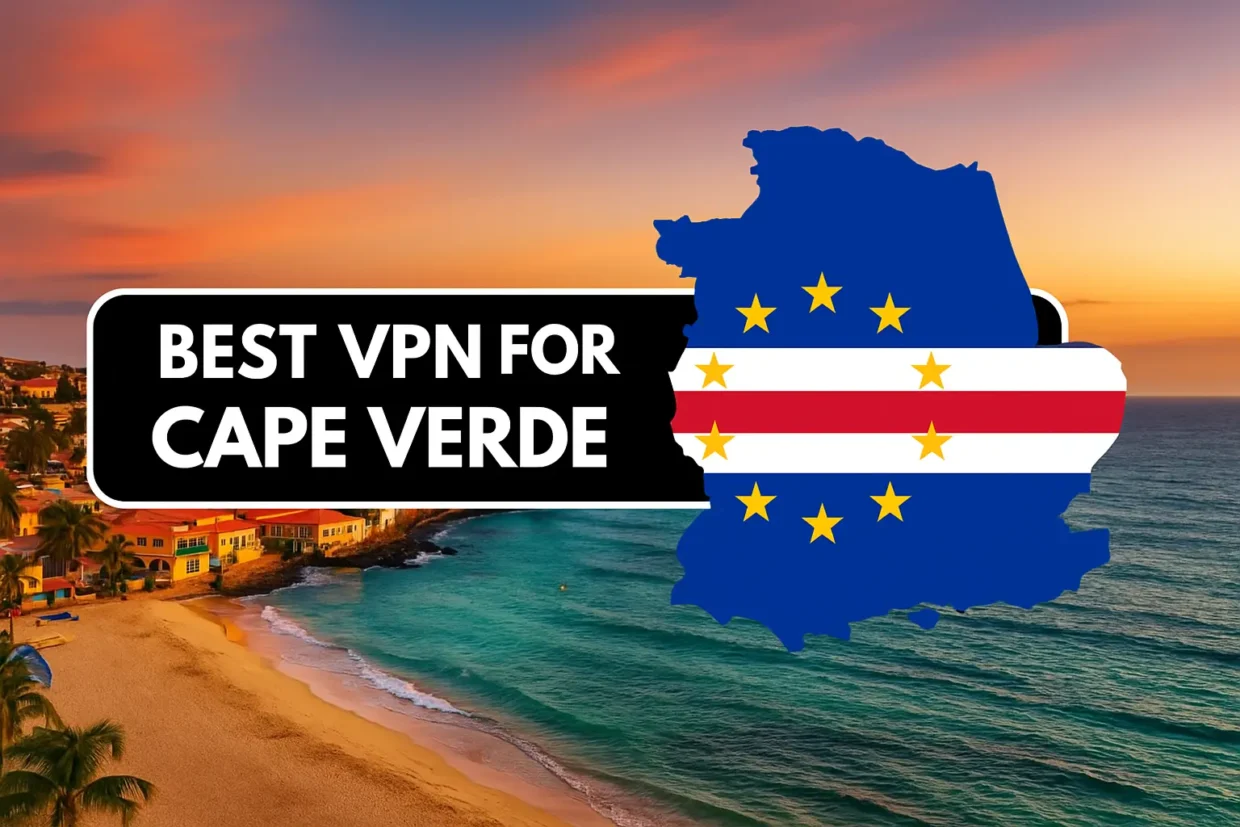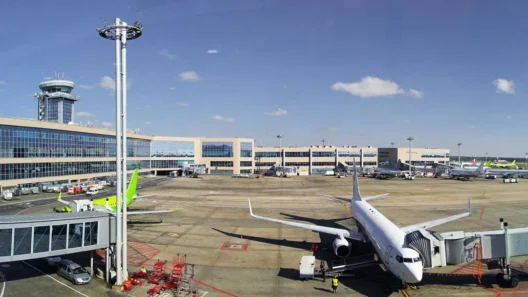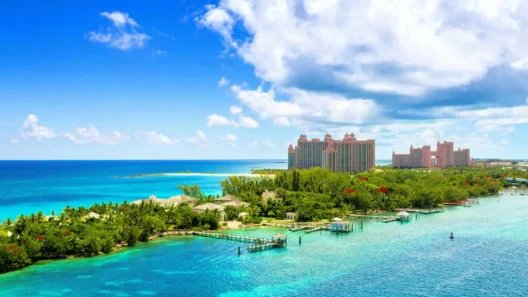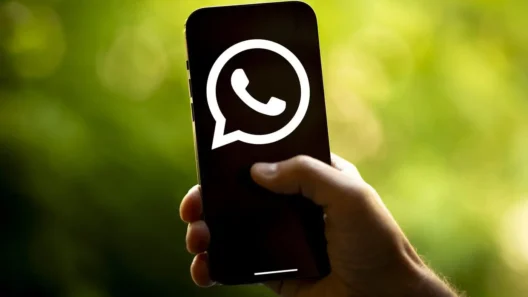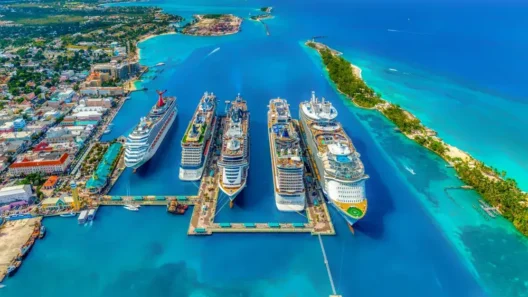So, You’ve Booked Paradise. Now Let’s Talk About the Internet.
I get it. You’re going to Cape Verde for the beaches, not the bandwidth.
You picture slow mornings on Sal, sunset dinners in Santa Maria, maybe a few emails from the hotel terrace before diving back into vacation mode. And when you see “Free WiFi” listed on your booking, it feels like a bonus.
But here’s the reality:
The WiFi doesn’t reach your room.
Streaming won’t load.
Your banking app freaks out the moment you try to log in.
That’s when you start googling “VPN for Cape Verde”…
(Too late — I’ve been there.)
Whether you’re vacationing, working remotely, or just want to watch Netflix without the Cape Verdean version of a blackout, a VPN is a tiny tool that solves big problems. This guide explains why — and which VPNs actually work well on the islands.
The Cape Verde Connection: What to Expect from the Internet
Cape Verde is made up of 10 volcanic islands in the Atlantic. It’s breathtaking, off-grid, and for many travelers, that’s exactly the point. But when it comes to internet access, the islands are not all created equal.
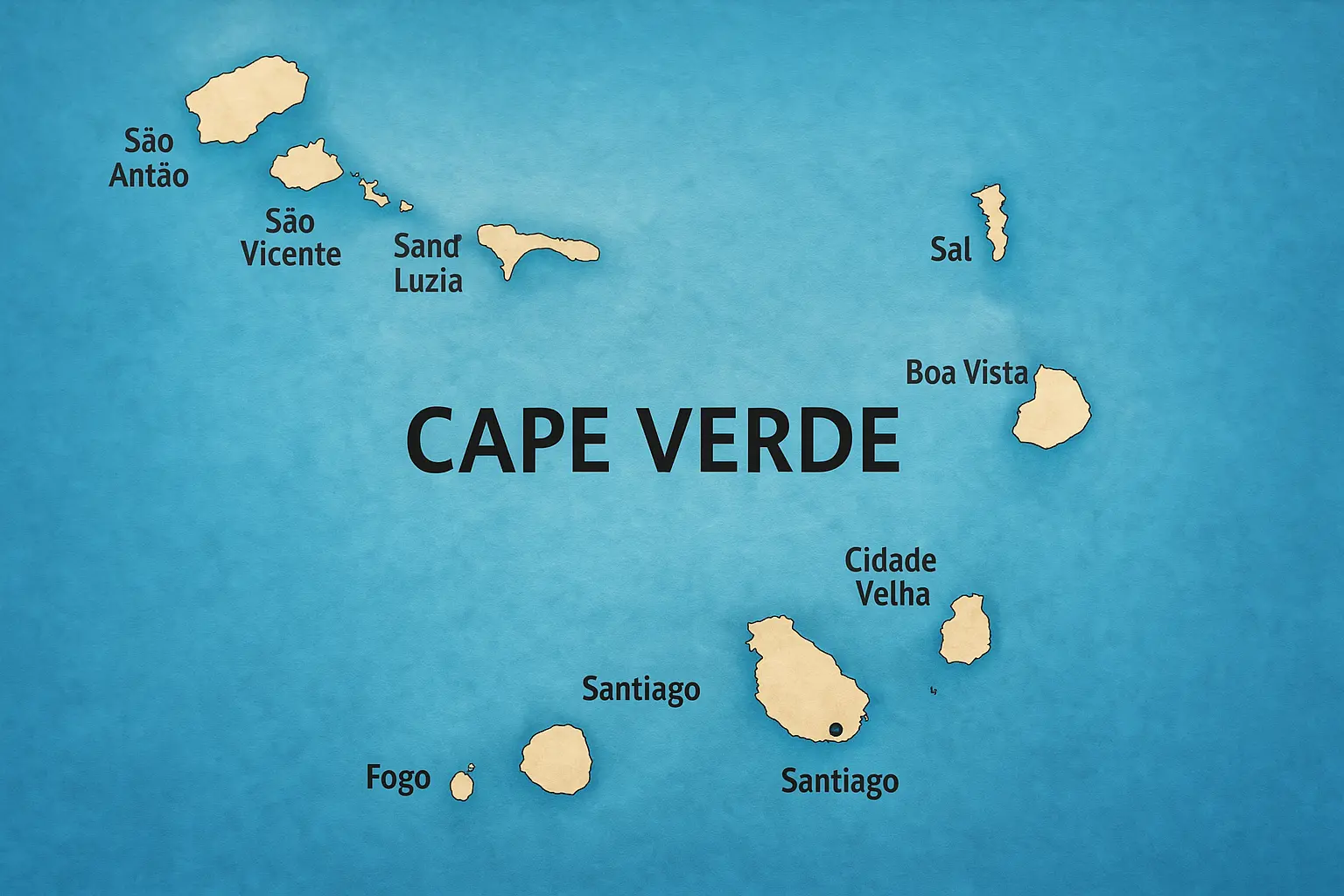
WiFi in Resorts and Hotels
Most 3–5 star hotels do offer WiFi, but don’t expect the speeds or stability you’re used to in Europe or North America. Here’s what I ran into:
- Speeds under 10 Mbps were common — enough for emails and messaging, not HD streaming.
- WiFi was limited to the lobby or pool bar — your room? Not so much.
- Login portals and shared passwords were everywhere, and none of it encrypted.
- Router names like “Hotel_WiFi_2015” are a real thing — and a red flag.
🔐 Security tip: On these open networks, anyone could run a packet sniffer and scoop up unencrypted logins or data. A VPN blocks that completely by encrypting your traffic end to end.
Mobile Data in Cape Verde
If you plan to use mobile data, expect better coverage — but with caveats.
There are two main providers:
- Unitel T+
- CV Móvel
You can get prepaid SIM cards easily at the airport or in town. Most plans offer 2–10 GB of data for affordable prices. But the real limitation is the IP address they assign you.
Many mobile networks use carrier-grade NAT (CG-NAT), meaning:
- Your device shares an IP with many others.
- Certain apps or VPN protocols may not work properly.
- Streaming services often misidentify your region or outright block access.
💡 Solution? Choose a VPN that supports obfuscated servers or alternate ports (NordVPN, ExpressVPN, and Surfshark all do this well).
3 Real-World Scenarios When a VPN Saves Your Sanity in Cape Verde
A VPN isn’t something you think about until you desperately need it. Here’s how it becomes your most useful travel app — right after Google Maps and offline translation.
1. Your Favorite Shows Disappear
After a long day snorkeling or hiking Monte Verde, you just want to unwind with a show. You open Netflix or Prime Video and suddenly — nothing looks familiar. Entire seasons are gone. Some titles don’t even play.
This isn’t a glitch — it’s regional licensing. Streaming platforms adjust their catalogs depending on where you are. On Cape Verde, you’ll often get limited or Portuguese-language content.
With a VPN, you can:
- Choose a server in your home country.
- Restore your full library instantly.
- Get subtitles and languages you actually understand.
It’s like digitally teleporting home for an hour, then coming back to paradise.
2. Your Bank Thinks You’ve Been Hacked
Trying to pay for that last-minute day trip to Fogo? Your banking app might block the transaction just because you’re abroad. Some apps won’t even let you log in from “unexpected locations.”
Banks, PayPal, and cloud tools often flag logins from unusual IP addresses — and Cape Verde isn’t exactly a frequent login location.
With a VPN, you can:
- Appear to be logging in from your usual city
- Avoid triggering security warnings or account locks
- Keep your financial access uninterrupted
This matters especially if you’re freelance, self-employed, or managing remote assets while traveling.
3. Your Hotel WiFi Isn’t as Private as You Think
Public WiFi is convenient — and wildly insecure. Especially in resort areas where dozens of tourists are using the same open network with no password or outdated encryption.
Even if you’re just checking email, you’re leaving breadcrumbs that anyone on that network could scoop up with free software.
A VPN creates a secure tunnel, encrypting your connection so:
- Hackers can’t see what you’re doing
- Snoops can’t steal passwords or session tokens
- You can safely log into sensitive sites like work dashboards or file storage
4. Choosing the Right VPN Based on Your Travel Style
There’s no one-size-fits-all VPN. The best choice depends on how — and with whom — you travel.
Let’s break it down:
Family Trip: Kids, Tablets, and Shared Devices?
You’re juggling iPads, smartphones, a laptop, and maybe even a Smart TV in the Airbnb. Everyone wants WiFi, and the kids want Netflix.
Best pick: Surfshark
- Unlimited devices on one account
- Easy to install on all platforms
- Built-in ad-blocking to protect younger users
- Great value for large groups or families
- Try SurfShark – 87% off
Digital Nomad or Remote Work Warrior?
You’re mixing business with beaches — Zoom calls, cloud access, online banking, VPN within a VPN.
Best pick: NordVPN
- Stable high-speed servers
- Excellent for sensitive work data
- Meshnet lets you link all your devices securely
- Kill switch and auto-connect for uninterrupted protection
- Try NordVPN – 77% off
Streaming Addict Who Can’t Miss Their Series?
You travel with a streaming agenda. You don’t just need access — you need it in HD and on a hotel TV.
Best pick: ExpressVPN
- Fast, consistent speeds worldwide
- MediaStreamer for devices without native VPN support (like Apple TV)
- One of the best VPNs for Netflix, HBO Max, Disney+, and Prime Video
- Simple setup on routers and consoles
- Try ExpressVPN – 61% off
First-Timers or Technophobes?
You want something that just works. No techy terms. No advanced settings.
Best pick: CyberGhost
- Plug-and-play interface
- Streaming-optimized servers already labeled
- Apps available in multiple languages
- Pre-configured options like “Netflix US” or “Amazon Prime UK”
- Try CyberGhost – 83% off
Tech-Savvy Traveler or Power User?
You travel with your own router. You run Linux. You know what port forwarding means.
Best pick: Private Internet Access (PIA)
- Open-source apps with deep customization
- Works with routers, NAS systems, and Linux distros
- Offers SOCKS5 proxy, WireGuard, custom DNS, and port forwarding
- No device limit — use it on everything
- Try PIA VPN – 85% off
5. Smart Travel, Smarter Setup: VPN Tips for Devices, eSIMs, and Routers
Using a VPN on your phone is easy. But what if you want full coverage — across all your gear? Here’s how to make your setup bulletproof while hopping islands.
VPN on Smart TVs and Streaming Devices
Most hotel TVs don’t support VPN apps. Some don’t even let you change the DNS.
Here’s how to work around that:
Option 1: MediaStreamer (ExpressVPN)
Acts as a smart DNS service. No VPN encryption, but unlocks content on Apple TV, Xbox, PlayStation, or any “dumb-smart” TV.
Option 2: VPN router connection
If you bring your own travel router (like GL.iNet), you can install VPN software directly — or use OpenVPN or WireGuard profiles.
🧠 Pro tip: Pre-configure the VPN on your router before your trip. That way, any device that connects to it is automatically secured.
Combining VPN + eSIM = Total Travel Freedom
Local SIM cards are affordable in Cape Verde, but if you want fast setup and multiple countries, eSIMs are your best friend.
Best part? VPNs work perfectly over eSIM connections.
⚡ Recommended combo:
- Buy a travel eSIM from a provider like Saily or Airalo, Nomad
- Pair it with Surfshark or NordVPN
- Set up VPN auto-connect to protect your data over mobile networks
With this setup, you can:
- Stay online while island hopping
- Avoid public WiFi altogether
- Stream, work, and browse in full privacy
Public WiFi in Airports and Ferry Terminals

Think hotel WiFi is bad? Try connecting in a small airport lounge or ferry station.
Unsecured, slow, and filled with data-hungry strangers.
VPN = peace of mind:
- Encrypts everything (emails, bank logins, cloud syncs)
- Prevents man-in-the-middle attacks
- Hides your IP from shady hotspots
Airport Setup Checklist
Before your plane even takes off, check this:
- ✅ VPN installed and updated
- ✅ Your login credentials saved or remembered
- ✅ Downloaded your VPN provider’s server list
- ✅ Enabled kill switch and auto-connect
- ✅ Tested streaming access from your home region
6. Common Mistakes Travelers Make Without a VPN (and How to Avoid Them)
A surprising number of smart travelers make digital mistakes that a VPN could fix instantly. Don’t be one of them.
❌ 1. Trusting “Free Hotel WiFi” With Private Info
Never check your bank, work email, or cloud documents without VPN encryption. Most WiFi setups on the islands lack basic protections — like WPA2 or unique logins.
✅ Always assume public WiFi = public information unless tunneled through a VPN.
❌ 2. Thinking a Free VPN Will Be “Good Enough”
If you’re not paying for the VPN, you are the product.
Free VPNs come with:
- Data caps (500MB/day — barely enough for a few emails)
- Slow speeds
- Limited server locations
- Questionable privacy practices (some even sell your data)
✅ Stick to premium, tested providers with no-logs policies and global infrastructure.
❌ 3. Only Using VPN “When You Remember”
Leaving it off on “harmless” networks is like locking your suitcase but leaving your laptop wide open.
✅ Use auto-connect, set your VPN to start on boot, and use trusted WiFi profiles sparingly.
❌ 4. Forgetting to Test the VPN Before Departure
It’s not uncommon to buy a VPN, board your flight, and realize it doesn’t work with your streaming platform or won’t connect on mobile.
✅ Test it on all devices before you fly — and make sure customer support is reachable if anything breaks while abroad.
❌ 5. Using VPNs That Don’t Support Obfuscation or Bypass CG-NAT
Some hotel or mobile networks block standard VPN ports. Obfuscation helps VPN traffic look like normal HTTPS — great for bypassing over-restrictive networks.
✅ Choose a VPN with stealth mode or NoBorders feature.
(ExpressVPN, NordVPN, and Surfshark all support this.)
Which VPN Should You Choose for Cape Verde?
Here’s a quick breakdown based on how you travel and what you value most:
| Traveler Type | Best VPN | Why It Works |
|---|---|---|
| 🧳 Family or group trip | Surfshark | Unlimited devices, family-friendly features |
| 💼 Remote worker / nomad | NordVPN | Stable, secure, great with cloud-based work |
| 🎥 Streaming fan | ExpressVPN | Fast, reliable access to global libraries |
| 👶 Beginner / casual user | CyberGhost | Super easy interface with pre-set streaming modes |
| 🧠 Power user / IT savvy | PIA | Advanced control, open-source, router support |
The 60-Second Summary (In Case You Scrolled Here First)
- Cape Verde = paradise, but internet is tricky
- Hotel WiFi = often open, slow, and not secure
- Mobile networks use CG-NAT → VPN needed to stream / bank / work
- A good VPN lets you:
✅ Stream like you’re home
✅ Protect sensitive data on public WiFi
✅ Bypass blocks and restrictions
✅ Access banking and cloud services without issues - Best VPNs for Cape Verde: Surfshark, NordVPN, ExpressVPN, CyberGhost, PIA
- Combine with eSIM for the best experience on the go
- Don’t leave home without testing your VPN setup!
Final Thoughts: The Internet in Paradise Still Needs Protection
Travel is about freedom. You fly thousands of miles to disconnect from work — and ironically, need to stay connected to feel secure.
You don’t need a VPN to enjoy Cape Verde’s sunsets, music, or warmth. But if you’re logging into anything remotely private — your bank, your office, your Netflix queue — a VPN makes the difference between relaxing fully and worrying silently.
No, it’s not as exciting as a new pair of flip-flops. But trust me — it’ll save your digital life while you’re watching the waves.
🏝️ Enjoy the islands. Travel safe. Stay private.







